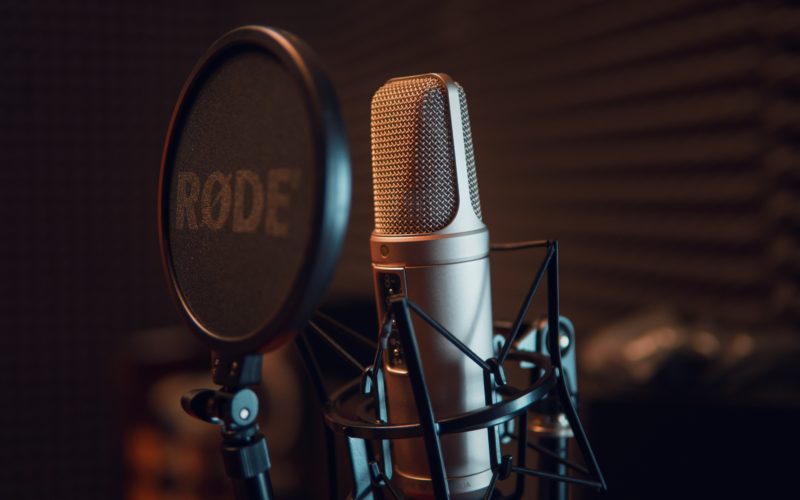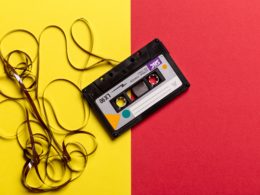In the midst of the pandemic, Olivia Rodrigo’s release of “Drivers License” united people of all ages across the Internet. Shrouded in the story of romance between Rodrigo and her Disney co-star, Joshua Bassett,1[1]See Andrew Unterberger, ‘We’ve Never Seen Anything Like This’: Spotify Reacts to Olivia Rodrigo’s Record-Breaking ‘Drivers License’, BILLBOARD (Jan. 14, 2021), https://www.billboard.com/articles/columns/pop/9511182/olivia-rodrigo-spotify-hit-success/. listeners inside and outside of Disney’s target audience became obsessed with the drama. Rodrigo followed up the success of her first single with two more hits, “Déjà Vu” and “Good 4 U,” and released her debut album on May 21.2[2]See Olivia Horn, Olivia Rodrigo Sour, PITCHFORK (May 21, 2021), https://pitchfork.com/reviews/albums/olivia-rodrigo-sour/; https://pitchfork.com/reviews/tracks/olivia-rodrigo-deja-vu/; see also Chris Molanphy, Why Olivia Rodrigo’s “Good 4 U” is Rock’s First Hot 100 No. 1 in Years, SLATE (May 29, 2021, 5:30 AM), https://slate.com/culture/2021/05/olivia-rodrigo-good-4-u-billboard-number-1.html. Yet in the wake of her album release, Rodrigo has sacrificed “millions in publishing royalties” to the sources of her musical inspiration.3[3]Kristin Robinson, Split Decisions: Olivia Rodrigo Has Given Up Millions in Publishing Royalties, BILLBOARD (Sept. 1, 2021), https://www.billboard.com/articles/business/publishing/9622848/olivia-rodrigo-royalties-song-credits-sour/..
Rodrigo gave writing credits to Taylor Swift, Jack Antonoff, and St. Vincent for the songs “Déjà Vu” and “1 Step Forward, 3 Steps Back” after Rodrigo acknowledged Swift’s songs “Cruel Summer” and “New Year’s Day” were inspirations for her own songs.4[4]Gil Kaufman, Taylor Swift, Jack Antonoff & St. Vincent Get Co-Writer Credits on Olivia Rodrigo’s ‘Déjà Vu’, BILLBOARD (July 9, 2021), https://www.billboard.com/articles/columns/pop/9598750/taylor-swift-jack-antonoff-st-vincent-co-writer-credits-olivia-rodrigo-deja-vu/; see also Robinson, supra note 3. Fans also noticed similarities between “Good 4 U” and Paramore’s 2007 hit “Misery Business,” leading to a mashup of the two songs going viral on Tik Tok.5[5]Sara El-Mahmoud, How Olivia Rodrigo ‘Good 4 U’ TikTok Trend Led to the Singer Giving Up Millions in Royalties, CINEMA BLEND (Sept. 4, 2021), https://www.cinemablend.com/television/2573077/how-olivia-rodrigo-good-4-u-tiktok-trend-led-singer-giving-up-millions-royalties-paramore-taylor-swift. Rodrigo’s representatives said that Rodrigo and Paramore had been in communication prior to the song’s release, but it was only after the mashup went viral that Rodrigo added Paramore lead singer, Hayley Williams, and ex-guitarist, Joshua Farro, to the song’s writing credits.6[6]Jem Aswad, Olivia Rodrigo Adds Paramore to Songwriting Credits on ‘Good 4 U’, VARIETY (Aug. 25, 2021, 7:38 AM), https://variety.com/2021/music/news/olivia-rodrigo-paramore-good-4-u-misery-business-1235048791/.
“Good 4 U” has been called an interpolation of “Misery Business.”7[7]Robinson, supra note 3. An interpolation is distinct from a sample; a sample is a clearer and more obvious utilization of one song that has been transformed to create a new song.8[8]What is the Difference Between a Sample and an Interpolation?, SONGTRUST, https://help.songtrust.com/knowledge/what-is-the-difference-between-a-sample-and-interpolation. An interpolation is essentially “borrowing” a song and creating something new from it. It can be thought of as a “callback” to a previously recorded song.9[9]Elias Leight, Why You’re Hearing More Borrowed Lyrics and Melodies on Pop Radio, ROLLING STONE (July 5, 2018, 1:31 PM), https://www.rollingstone.com/music/music-news/why-youre-hearing-more-borrowing-on-pop-radio-627837/.
The legal status of interpolations is dependent on the Copyright Act.10[10]See 17 U.S.C. § 107 et. Al. There are three initial factors to consider whether a song has been copied and possibly infringed: (1) whether the songs are substantially similar, (2) whether the defendant had access to the song allegedly infringed, and (3) whether the plaintiff has proof of copyright ownership of the work allegedly infringed.11[11]See Sid & Marty Krofft Television Prod., Inc. v. McDonald’s Corp., 562 F.2d 1157, 1162 (9th Cir. 1977). Because interpolations rely on some sort of “call-back” to a previously recorded song, if the new musical work is substantially similar to the original, it will require clearance by the author of the original work to avoid liability for possible copyright infringement.12[12]17 U.S.C. § 114 (1995)
The controversy regarding Rodrigo’s decision to give Paramore writing credits raises a question that has been at the forefront of music and intellectual property debates for quite some time now—where is the line between stealing someone’s art and using it as inspiration?
Recent copyright infringement cases have potentially problematic implications for artists who interpolate songs. Even though some of the artists claim the similarities between songs are accidental, they end up settling with parties and giving up royalties to avoid litigation. For example, Mark Ronson and Bruno Mars were sued by a band called Collage who claimed that “Uptown Funk” was “strikingly similar in rhythm, harmony, melody, structure, nature, etc.”13[13]Complaint for Damages at 18, Yours, Mine and Ours Music v. Sony Music Ent., 2016 WL 6442252 (C.D. Cal. 2016) (No. 16-CV-8056). Ronson and Mars ended up settling out of court.14[14]Jazz Monroe, Bruno Mars and Mark Ronson Settle One of Three “Uptown Funk” Lawsuits: Report, Pitchfork (Apr. 13, 2018), https://pitchfork.com/news/bruno-mars-and-mark-ronson-settle-one-of-three-uptown-funk-lawsuits-report/.
Recent court opinions have significantly lowered the threshold for finding liability in infringement suits, which is why artists may be acting more generously in offering writing credits. In 2018, the Ninth Circuit confirmed that Robin Thicke and Pharrell Williams’ hit “Blurred Lines” infringed on the copyright to Marvin Gaye’s “Got To Give It Up,” resulting in $5.3 million in damages owed to Mr. Gaye’s estate.15[15]See Williams v. Gaye, 895 F.3d 1106 (9th Cir. 2018). The court held that “Blurred Lines” infringed on Gaye’s work due to similarities between the signature phrase, hooks, backup vocals, bass melodies, keyboard parts, and percussion.16[16]Id. at 1117. The dissent had a different view, cautioning that the majority was allowing artists to copyright a “musical style” which could jeopardize future artists’ ability to build upon previous works.17[17]Id. at 1183–84 (9th Cir. 2018) (Nguyen, J., dissenting). Since this decision, there has been an increase in infringement cases brought by artists.18[18]Benom Plumb, Avoiding Copyright Infringement: What Lana Should Have Done, Royalty Exchange (Jan. 12, 2018), https://www.royaltyexchange.com/blog/avoiding-copyright-infringment-what-lana-should-have-done.
Since the door has been opened for copyright infringement suits, artists have proactively given up revenue from their success in order to avoid potentially damaging legal battles. It is understandable why some artists and labels are on high alert for songs which sound similar to their own, as historically some artists have only added writing credits after being sued instead of being proactive about the issue.19[19]Leight, supra note 9. Sam Smith retroactively gave Tom Petty and Jeff Lynne writing credits on his hit “Stay With Me” even though Smith said he had never even heard the Petty song “I Won’t Back Down,” which Petty challenged as the basis for Smith’s record.20[20]Daniel Kreps, Sam Smith on Tom Petty Settlement: ‘Similarities’ but ‘Complete Coincidence’, ROLLING STONE (Jan. 26, 2015, 4:19 PM), https://www.rollingstone.com/music/music-news/sam-smith-on-tom-petty-settlement-similarities-but-complete-coincidence-34776/. And, facing potential controversy after Rodrigo’s album release, her team will now disburse over $2 million in royalties due to new writing credits for interpolations.21[21]Robinson, supra note 3.
As pop culture rides the wave of embracing nostalgia, music executives do not expect the practice of using interpolations to slow down any time soon.22[22]Ethan Millman, ‘No Shelf Life Now’: The Big Business of Interpolating Old Songs for New Hits, ROLLING STONE (Sept. 7, 2021, 2:53 PM), https://www.rollingstone.com/pro/features/olivia-rodrigo-doja-cat-interpolation-music-1220580/ Interpolations are a win for many stakeholders involved; publishers and artists receive new revenue streams from old songs, and the new interpolated songs float to the top of the charts because of their recognizable yet innovative qualities.23[23]Id. Thus, as the interpolation trend continues on, best practice is to give the artists used for inspiration writing credits on the song, even if that could lead to the sacrificing of royalties.24[24]Id.
Written by: Cassandra Lagana
Cassandra is a 2023 J.D. Candidate at Brooklyn Law School
1 See Andrew Unterberger, ‘We’ve Never Seen Anything Like This’: Spotify Reacts to Olivia Rodrigo’s Record-Breaking ‘Drivers License’, Billboard (Jan. 14, 2021), https://www.billboard.com/articles/columns/pop/9511182/olivia-rodrigo-spotify-hit-success/.
2 See Olivia Horn, Olivia Rodrigo Sour, Pitchfork (May 21, 2021), https://pitchfork.com/reviews/albums/olivia-rodrigo-sour/; https://pitchfork.com/reviews/tracks/olivia-rodrigo-deja-vu/; see also Chris Molanphy, Why Olivia Rodrigo’s “Good 4 U” is Rock’s First Hot 100 No. 1 in Years, Slate (May 29, 2021, 5:30 AM), https://slate.com/culture/2021/05/olivia-rodrigo-good-4-u-billboard-number-1.html.
3 Kristin Robinson, Split Decisions: Olivia Rodrigo Has Given Up Millions in Publishing Royalties, Billboard (Sept. 1, 2021), https://www.billboard.com/articles/business/publishing/9622848/olivia-rodrigo-royalties-song-credits-sour/.
4 Gil Kaufman, Taylor Swift, Jack Antonoff & St. Vincent Get Co-Writer Credits on Olivia Rodrigo’s ‘Déjà Vu’, Billboard (July 9, 2021), https://www.billboard.com/articles/columns/pop/9598750/taylor-swift-jack-antonoff-st-vincent-co-writer-credits-olivia-rodrigo-deja-vu/; see also Robinson, supra note 3.
5 Sara El-Mahmoud, How Olivia Rodrigo ‘Good 4 U’ TikTok Trend Led to the Singer Giving Up Millions in Royalties, Cinema Blend (Sept. 4, 2021), https://www.cinemablend.com/television/2573077/how-olivia-rodrigo-good-4-u-tiktok-trend-led-singer-giving-up-millions-royalties-paramore-taylor-swift.
6 Jem Aswad, Olivia Rodrigo Adds Paramore to Songwriting Credits on ‘Good 4 U’, Variety (Aug. 25, 2021, 7:38 AM), https://variety.com/2021/music/news/olivia-rodrigo-paramore-good-4-u-misery-business-1235048791/.
7 Robinson, supra note 3.
8 What is the Difference Between a Sample and an Interpolation?, Songtrust,https://help.songtrust.com/knowledge/what-is-the-difference-between-a-sample-and-interpolation.
9 Elias Leight, Why You’re Hearing More Borrowed Lyrics and Melodies on Pop Radio, Rolling Stone (July 5, 2018, 1:31 PM), https://www.rollingstone.com/music/music-news/why-youre-hearing-more-borrowing-on-pop-radio-627837/.
10 See 17 U.S.C. § 107 et. Al.
11 See Sid & Marty Krofft Television Prod., Inc. v. McDonald’s Corp., 562 F.2d 1157, 1162 (9th Cir. 1977).
12 17 U.S.C. § 114 (1995)
13 Complaint for Damages at 18, Yours, Mine and Ours Music v. Sony Music Ent., 2016 WL 6442252 (C.D. Cal. 2016) (No. 16-CV-8056).
14 Jazz Monroe, Bruno Mars and Mark Ronson Settle One of Three “Uptown Funk” Lawsuits: Report, Pitchfork (Apr. 13, 2018), https://pitchfork.com/news/bruno-mars-and-mark-ronson-settle-one-of-three-uptown-funk-lawsuits-report/.
15 See Williams v. Gaye, 895 F.3d 1106 (9th Cir. 2018).
16 Id. at 1117.
17 Id. at 1183–84 (9th Cir. 2018) (Nguyen, J., dissenting).
18 Benom Plumb, Avoiding Copyright Infringement: What Lana Should Have Done, Royalty Exchange (Jan. 12, 2018), https://www.royaltyexchange.com/blog/avoiding-copyright-infringment-what-lana-should-have-done.
19 Leight, supra note 9.
20 Daniel Kreps, Sam Smith on Tom Petty Settlement: ‘Similarities’ but ‘Complete Coincidence’, Rolling Stone (Jan. 26, 2015, 4:19 PM), https://www.rollingstone.com/music/music-news/sam-smith-on-tom-petty-settlement-similarities-but-complete-coincidence-34776/.
21 Robinson, supra note 3.
22 Ethan Millman, ‘No Shelf Life Now’: The Big Business of Interpolating Old Songs for New Hits, Rolling Stone (Sept. 7, 2021, 2:53 PM), https://www.rollingstone.com/pro/features/olivia-rodrigo-doja-cat-interpolation-music-1220580/
23 Id.
24 Id.




